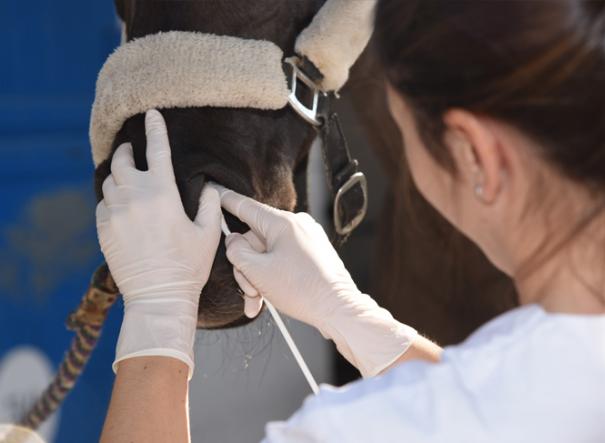Equine rhinopneumonia outbreak 2021 in Spain
Equine herpesvirus type 1 (EHV-1)
March 2nd, 2021

As of 20th February the FEI Veterinary Department (Fédération Equestre Internationale) informed of an outbreak of Equine Herpesvirus type 1 (EHV-1) in showjumping horses, having arrived to their country after competing in an international showjumping competition in Valencia, Spain. With the appearance of more horses with fever in this competition, the authorities closed the premises and proceeded to the diagnosis of the affected horses; the EHV-1 outbreak in Valencia was officially declared as of 24th February (1). Up to date, the outbreak has involved the closure of premises in Madrid, Barcelona and Valencia, with outbreaks occurring in other countries such as France, Belgium and Germany. More than 150 horses are being kept in isolation at the competition premises in Valencia, with 84 horses clinically affected and 4 horses already euthanised. National and international competition will be suspended until the end of March.
Equine Herpesvirus type 1 (EHV-1) is a common virus which is distributed worldwide and causes respiratory disease in young horses, abortion in mares and myeloencephalopathy in horses of any age (2,3).
The Equine Health Surveillance Unit (SEVISEQ) is a laboratory authorised by Comunidad de Madrid Authorities for the Health Control of Equine Infectious Diseases included in the RD 804/2011 (4). Any suspicion of EHV-1 in a horse must be communicated to the Official Veterinary Services of the corresponding Autonommous Community, and the premises where the horse/s reside will be closed until a definite diagnosis has been reached (5). Any suspicion in horses residing in the Autonommous Community of Madrid must be informed, and it is possible to send samples to the SEVISEQ Unit for their analysis (Deep nasal swab/nasopharyngeal swab + at least 20 ml of heparinised whole blood).
For further information and the consultation of questions regarding the diagnosis, treatment of equine infectious diseases or measures of prevention and control of an outbreak:
Fátima Cruz
Equine Health Surveillance Unit
VISAVET Health Surveillance Centre
Universidad Complutense Madrid
Tel.: (+34) 913944096
seviseq@ucm.es
Referencias:
2. Equine Herpesvirus type 1 as a cause of neurological signs. VISAVET, 2015
3. Equine Herpesvirus type 1 and type 4 as a cause of abortion. VISAVET 2016
VISAVET Health Surveillance Centre
Complutense University
